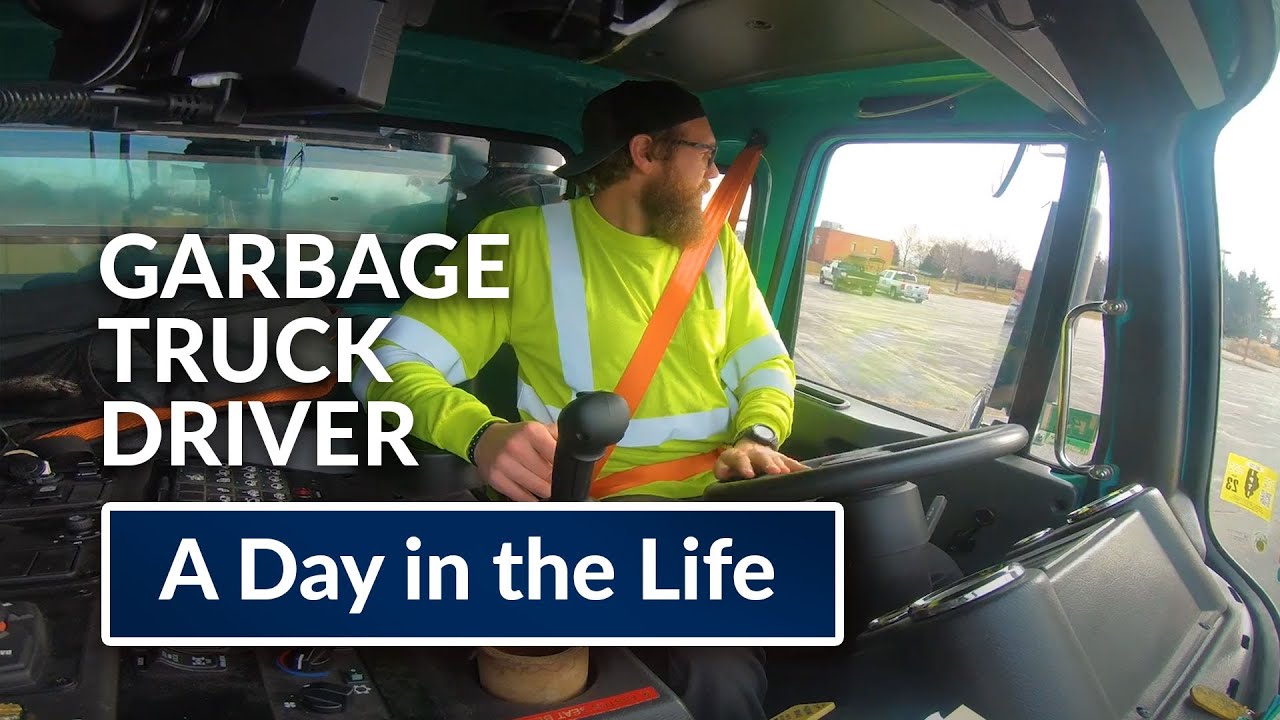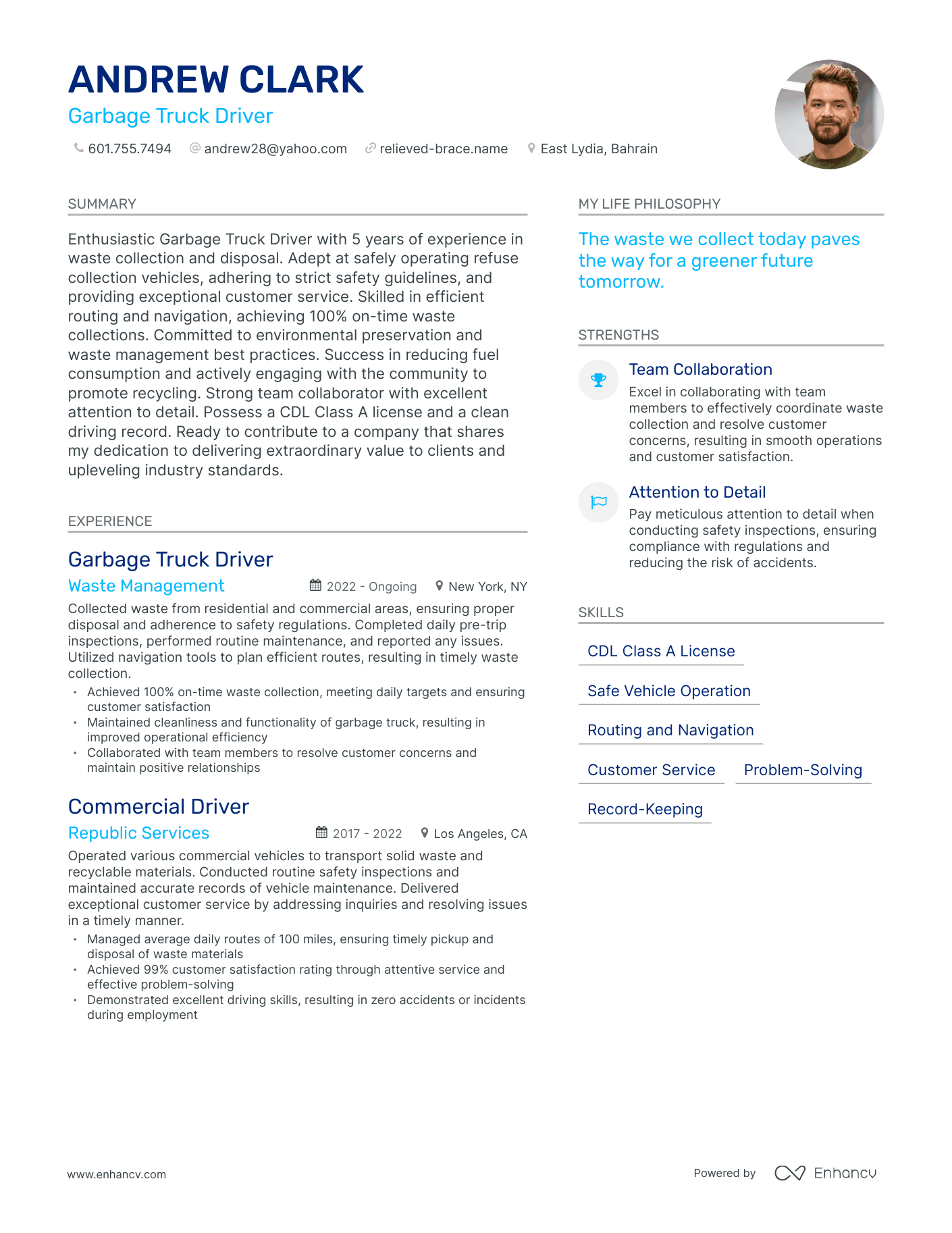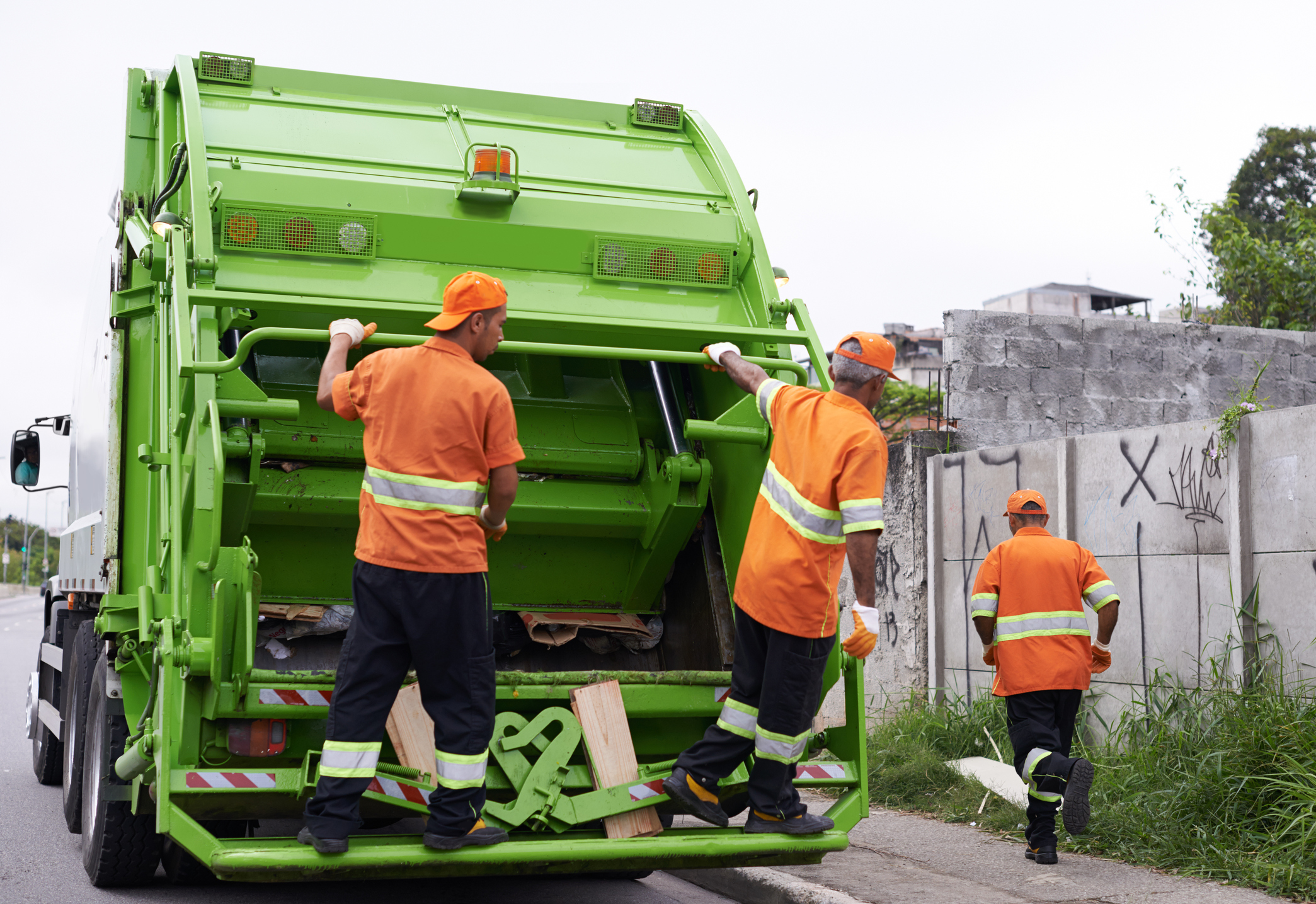Waste Management Garbage Truck Driver Jobs & Career Guide
If you’re looking for a stable career with competitive pay, benefits, and the satisfaction of performing an essential public service, becoming a waste management garbage truck driver might be your perfect fit. This comprehensive guide covers everything you need to know about securing a garbage truck driver job, from required qualifications and training to advancement opportunities and daily responsibilities. We’ll provide real-world insights to help you navigate this rewarding profession in the sanitation industry.

What Does a Garbage Truck Driver Do?
Garbage truck drivers do much more than just drive. They operate heavy commercial vehicles, manage complex hydraulic systems for waste compaction, and provide crucial customer service along their routes. A typical day involves pre-trip vehicle inspections, navigating assigned routes efficiently, operating automated or manual lifting mechanisms, and maintaining detailed service records.
Many drivers work alongside helpers (if not operating fully automated trucks), requiring teamwork and communication skills. The job demands physical stamina for lifting, bending, and occasionally handling special waste items. According to the Bureau of Labor Statistics, heavy truck drivers including waste collection operators work in all weather conditions to maintain collection schedules.
Requirements and Qualifications
Becoming a waste management professional requires meeting specific criteria:
- Commercial Driver’s License (CDL): Most positions require a Class B CDL, though some waste management garbage truck driver jobs may require Class A for transfer vehicles
- Clean Driving Record: Most companies review driving history for safety violations
- Physical Fitness: Ability to lift 50+ pounds and perform strenuous activities
- Background Check: Must pass drug screening and criminal history review
- Age Requirement: Typically 21 years or older for interstate commerce
Many waste management companies provide CDL training for qualified candidates, making this career accessible to those new to commercial driving.
Salary and Benefits for Sanitation Workers
Compensation in the waste management industry has improved significantly in recent years. The median annual wage for refuse and recyclable material collectors was $45,750 as of May 2022, with experienced drivers in high-cost areas earning $60,000+ annually.
Beyond base pay, most waste management garbage truck driver positions offer:
- Comprehensive health insurance packages
- Retirement plans with company matching
- Paid vacation and sick leave
- Overtime opportunities during peak seasons
- Potential for performance bonuses
- Union representation in many regions
Different Types of Waste Collection Vehicles
Understanding the equipment you’ll operate is crucial for success in garbage truck driver jobs. The industry uses several specialized vehicles:

| Vehicle Type | Primary Use | Key Features |
|---|---|---|
| Front-Loader | Commercial dumpsters | Large capacity, hydraulic forks |
| Rear-Loader | Residential curbside | Manual/automated lifting mechanisms |
| Side-Loader | Residential routes | Single operator capability |
| Roll-Off Truck | Construction sites | Container transport capability |
John Miller, a 15-year sanitation industry veteran and certified CDL instructor, notes: “Drivers who master multiple vehicle types significantly increase their value to employers and advancement opportunities within waste management companies.”
Career Advancement Opportunities
Starting as a garbage truck driver can lead to numerous advancement paths within the waste management industry. With experience and additional certifications, drivers can progress to:
- Route Supervisor: Managing collection efficiency and customer service issues
- Safety Trainer: Training new hires on proper procedures and compliance
- Operations Manager: Overseeing multiple routes and personnel
- Recycling Coordinator: Specializing in sustainable waste solutions
- Equipment Specialist: Focusing on vehicle maintenance and technology
Many waste management companies offer tuition reimbursement for relevant continuing education, including logistics management and environmental science degrees.
Daily Challenges and Rewards
Like any profession, waste management garbage truck driver jobs present unique challenges. Early morning starts, exposure to weather extremes, and physically demanding work can test new drivers. However, the rewards often outweigh these difficulties.
Garbage truck drivers enjoy:
- Job security in an essential industry
- Independent work environment
- Sense of community service
- Clear performance metrics
- Satisfaction of visible accomplishment
As municipal waste volumes continue growing—the EPA estimates 292.4 million tons of municipal solid waste generated in 2018—the need for skilled sanitation professionals remains strong.
Finding and Applying for Garbage Truck Driver Jobs
When searching for waste management employment opportunities:

- Check municipal government career pages for public works positions
- Visit major waste management company websites directly
- Network at industry events and job fairs
- Consider temporary positions that often lead to permanent roles
- Highlight any customer service experience in your application
Many successful applicants transition from related fields like delivery services, moving companies, or other driving positions where they’ve demonstrated reliability and safe operation of vehicles.
Frequently Asked Questions
What is the career outlook for garbage truck drivers?
The Bureau of Labor Statistics projects about 8% growth in employment for heavy truck drivers through 2030, with waste collection offering particular stability as an essential service less susceptible to economic downturns than some other driving professions.
How physically demanding are waste management garbage truck driver jobs?
While automation has reduced some physical demands, drivers still need good stamina and strength. Modern waste collection vehicles incorporate ergonomic designs, but routes still involve climbing in and out of cabs, occasional heavy lifting, and operating controls throughout the day.
What makes a successful garbage truck driver?
Beyond driving skills, successful sanitation professionals demonstrate reliability, customer service attitude, time management, mechanical aptitude for basic troubleshooting, and commitment to safety protocols. The best drivers take pride in keeping communities clean and functional.
Do waste management companies provide training?
Most established waste management employers comprehensive training programs covering vehicle operation, safety procedures, route management, and customer service standards. Many companies also assist with CDL certification for promising candidates lacking specific credentials.
Conclusion
Waste management garbage truck driver jobs offer a unique combination of competitive compensation, job security, and community service. With multiple advancement paths and growing demand for sanitation services, this career provides a solid foundation for long-term professional growth. By meeting the basic requirements and demonstrating reliability and safety consciousness, you can build a rewarding career in this essential industry.









